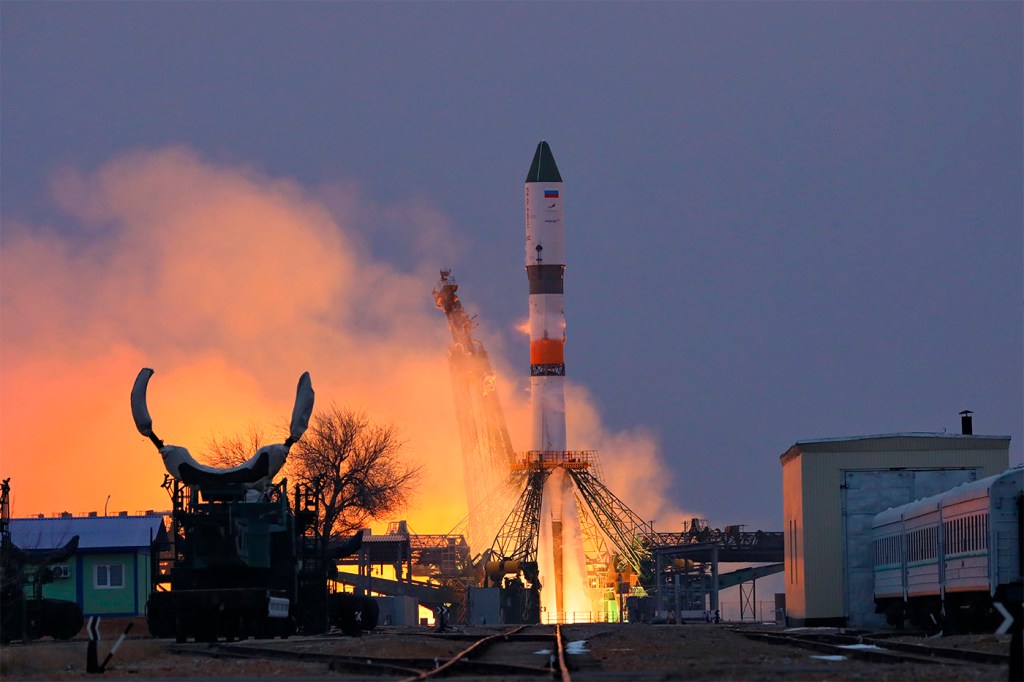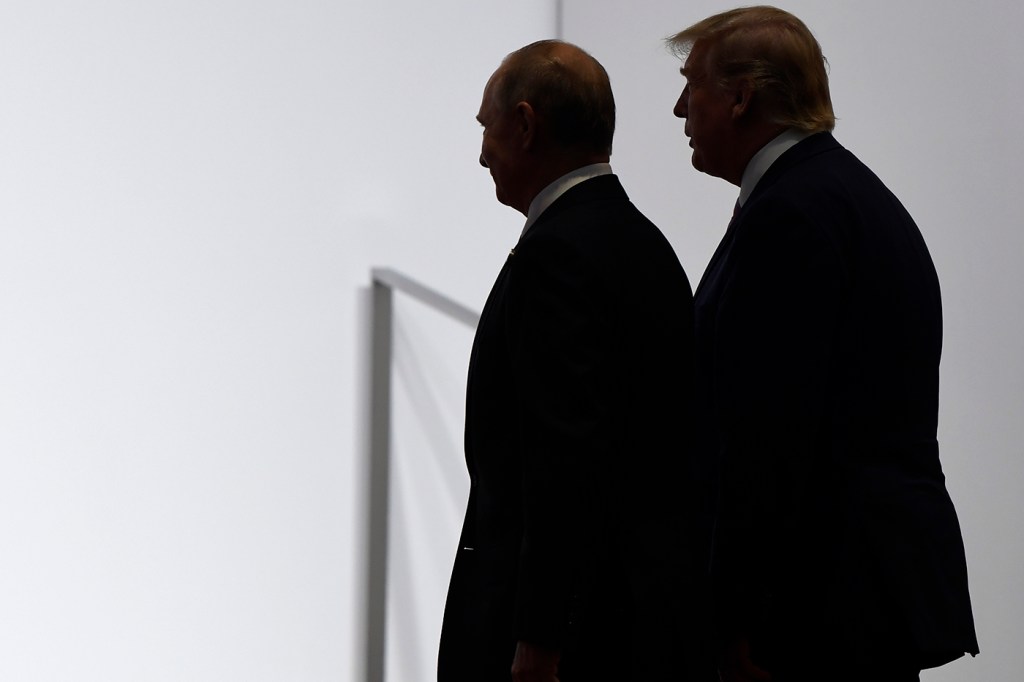If Russia is developing some kind of space-based weapon, Putin may never get to use it. Here’s why
Although it’s unclear exactly what the feared Russian capability is, the country may be too crippled by the war in Ukraine to ever test such a weapon, says a Northeastern expert who focuses on space diplomacy.

News of a possible Russian satellite-destroying, space-based nuclear weapon sent shock waves through Washington this week. Some officials responded with considerable alarm, while others insisted that such concern is — for the moment — an overreaction.
On Thursday, White House spokesman John Kirby told reporters that the alleged space weapon is “not an active capability that’s been deployed” and is not an “immediate threat to anyone’s safety” — though he added that the Biden administration will continue to “take it very seriously.”
Citing two officials with knowledge of the intelligence, the Washington Post reported this week that the military capability in question is a “nuclear-armed,” not “nuclear-powered,” weapon.
Mai’a Cross, dean’s professor of political science, international affairs and diplomacy, and director of the Center for International Affairs and World Cultures at Northeastern University, says that although it’s unclear exactly what the feared Russian capability is, the country may be too crippled by the war in Ukraine to ever test such a weapon aimed at satellites.

Additionally, Cross points to the “cascading effects” that weapons used in low Earth orbit could wreak on other satellites — including Russia’s very own.
Northeastern Global News spoke to Cross about the revelations this week. Her comments have been edited for brevity and clarity.
What do you make of the revelations so far?
We have known for some years that Russia was trying to develop this technology. There’s been a sense that Russia was working toward this, but at the same time, Vladimir Putin has threatened the use of nuclear weapons in the war in Ukraine. Given that, I think there’s a degree to which we have to take some of this with a grain of salt.
All of this is shocking and important to pay attention to, because it touches on the broader context, which is the fear amongst many that space is going to be weaponized, and countries are going to be crossing that line. Space is currently not weaponized. Space is used for militaries on the ground, but it is not weaponized. So any move — even, arguably, a nuclear-powered satellite, with electronic warfare capability — could be construed as a weapon on a satellite. If it’s designed primarily to disable other satellites, in some sense, it can be seen as a weapon.
My guess would be Russia doesn’t actually have the capability to do this at the moment. Judging by the sheer amount of resources devoted to the war effort, and the fact that recently Russia’s attempt at a moon landing failed. It’s almost like there’s been this recognition that, as a major space player, Russia is actually going backward; that it’s losing its once-dominant position to China, while the U.S. persists as the biggest space actor in the world currently.
What are the risks associated with space-based warfare? Say Russia did have a weapon of the sort first described. Would they use it?
If [Russia] really were about to try and take out American satellites, it would be costly, risky and provide almost no benefit, in my opinion. In terms of the risks, there’s this idea of the Kessler syndrome, which suggests that if you start some sort of explosion in space involving satellites in low Earth orbit, you could cause a cascading effect whereby you destroy your own satellites in the process — but also potentially all of the other satellites with all the debris created in the explosion. This is a huge risk and it would not benefit Russia at all.
Is there cause for alarm in your view?
There’s been a mix of reactions so far. It was a bit of a political move in the United States to actually share this intelligence, and it could also put intelligence assets at risk. But I think on the other hand, those who have been quite alarmist about the weaponization of space for some time have really amplified this as a big, looming problem.
It fits into this larger narrative about space as the next battlefield, and how we’re really at this critical juncture. I don’t necessarily disagree that we’re at a critical juncture; I just think that there’s much more on the other end of the spectrum that points toward the continued use of space for peaceful means and for scientific exploration. But the danger that this becomes a self-fulfilling prophecy to me is big, and in that sense, the fact that you don’t see the politicians jumping to grand conclusions is, to that end, helpful.






